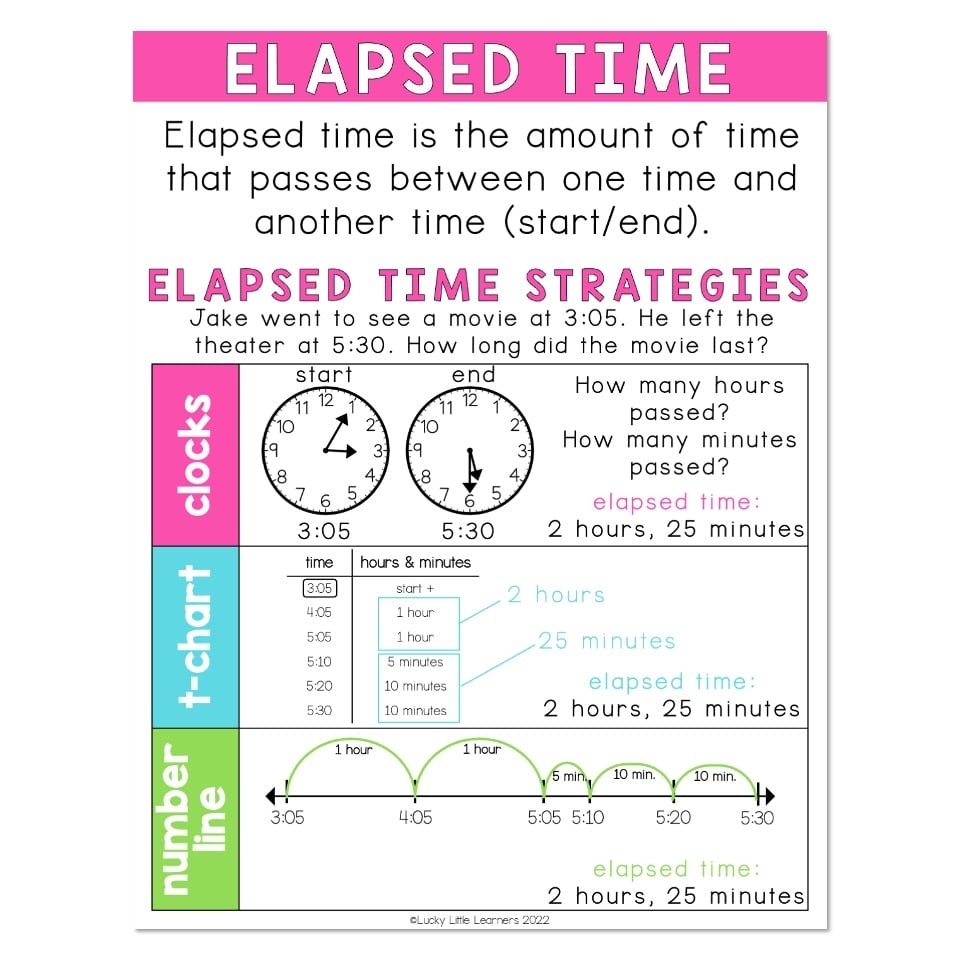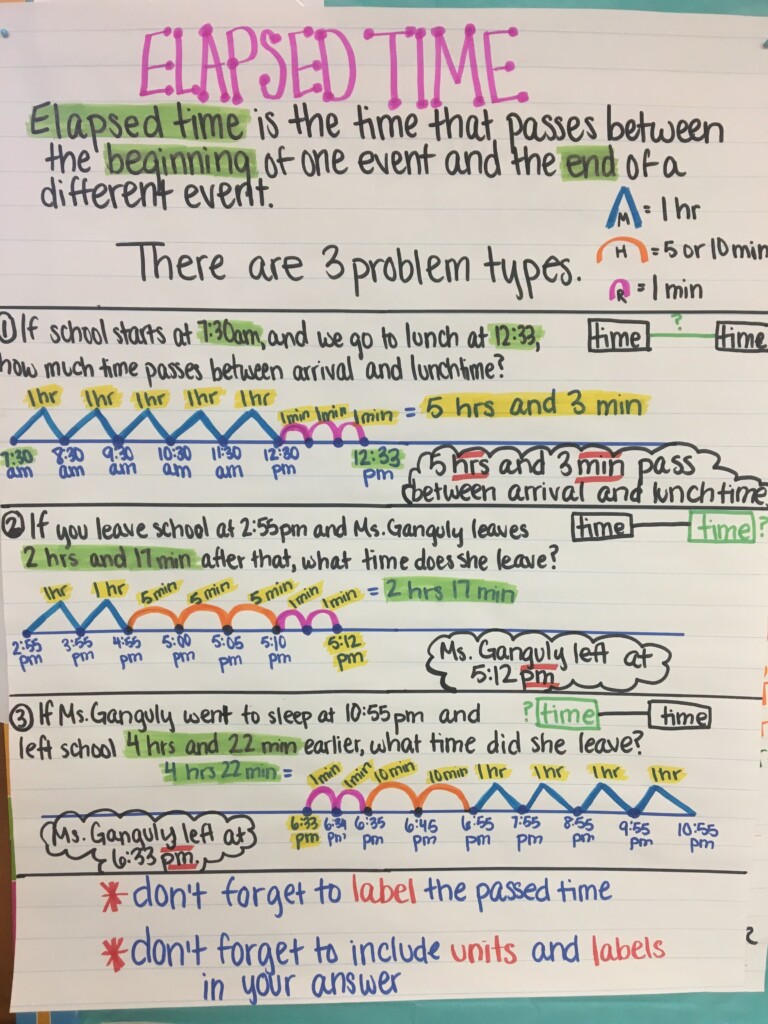An elapsed time anchor chart is a powerful tool used in classrooms to help students understand the concept of elapsed time. This visual aid provides a clear visual representation of how to calculate the amount of time that has passed between two given times. By breaking down the steps involved in determining elapsed time, students can develop a deeper understanding of this important mathematical concept.
When creating an elapsed time anchor chart, it is important to include key components such as a number line, clock faces, and labels for start and end times. The number line can help students visualize the passage of time and calculate the intervals between hours or minutes. Clock faces can be used to represent the start and end times, allowing students to practice reading and interpreting analog clocks. By labeling the start and end times clearly, students can easily identify the time interval they need to calculate.
Using an Elapsed Time Anchor Chart in the Classroom
Once the elapsed time anchor chart is created, teachers can use it as a reference tool during math lessons. By guiding students through the steps involved in calculating elapsed time, teachers can help students build confidence and improve their time-telling skills. The visual aid can also serve as a reminder for students who may struggle with remembering the steps involved in determining elapsed time. By incorporating the anchor chart into lesson plans and activities, teachers can provide students with a hands-on learning experience that reinforces their understanding of elapsed time.

